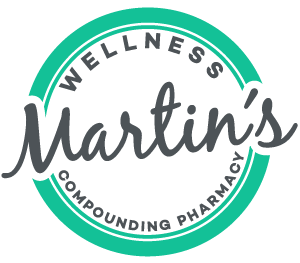Closing Your Nutritional Gap

CLOSING YOUR NUTRITIONAL GAP
What do I mean by the term “nutritional gap?” It’s the difference between what your body needs to function optimally, and what it actually receives from the food you eat. Several reputable studies report that the percentage of American adults who suffer from a nutritional gap can be as high as 99%.
There is a huge body of data that offers information about what foods can help prevent or better withstand different illnesses or conditions. We believe that a preventive approach, designed to address the underlying foundational imbalances that ultimately cause illness, offers the opportunity to avoid having to deal with such illnesses or conditions.
Better managing the body’s stress response is important in this respect because, in the words of the American Psychological Association, “extended reactions to stress can alter the body’s immune system in ways that are associated with. . . conditions such as frailty, functional decline, cardiovascular disease, osteoporosis, inflammatory arthritis, type 2 diabetes, and certain cancers.” So it stands to reason that, if you can better manage your body’s stress response, you can go a long way toward preventing those same illnesses and many others.
But how do you close the nutritional gap in a way that can better support your stress response? There are four key nutrients which, taken in therapeutic doses, will help you close the nutritional gap with respect to stress. These all should be taken in addition to your regular multiple vitamin (which, by the way, should be the best quality you can find).
The first is Vitamin C. The adrenals use vitamin C extensively when the body is under stress. There are many fruits and vegetables that are good sources of vitamin C. I certainly recommend eating those regularly, but the stress load most of us deal with dictates we need more vitamin C than they provide. As such, I recommend a minimum of 4 grams (4000 milligrams) of vitamin C every day, more if you know that your body will be stressed even more by a particular day’s activities.
The next nutrient is vitamin B complex. The central nervous system needs adequate amounts of the B vitamins to sustain the central nervous system portion of the stress response. There are many fruits, vegetables, meats, fish and grains that contain good sources of the various B vitamins. Again, though, most people don’t eat enough of these, or enough in the right balance, so I recommend taking a good quality B complex supplement every day.
The third nutrient is Omega 3 essential fatty acids. This is the raw material the body uses to synthesize the steroid based stress hormones of cortisol, DHEA and aldosterone. The natural sources I recommend are those from cold water fish, such as salmon or tuna; if your dietary preferences preclude fish, black currant seed oil can be a useful substitute. Therefore, taking two Omega 3 gelcaps of purified fish oil, or black currant seed oil, daily will help you fill this part of the nutritional gap.
I also recommend that we all supplement with a daily source of magnesium. Of all the minerals our bodies use when under stress, magnesium is the most crucial. The internationally renowned magnesium expert, Dr. Carolyn Dean, MD, estimates that over 80% of Americans are magnesium deficient. Therefore, daily supplementation with magnesium is also essential.
These are the basics of closing the nutritional gap. We have the tools and expertise to help you close yours. Contact us today to get started!
Peter M. McCarthy, ND
Peter M. McCarthy, ND is a nationally board certified traditional naturopath, and a wellness consultant with Martins Compounding and Wellness Centers in Austin, TX. He is the author of Adrenaline Nation: Chronic Stress is Ruining Our Health and Bankrupting Our Economy – Discover What YOU Can Do About It NOW! Trained in both functional blood work analysis and saliva hormone analysis, he is a former member of the Advisory Committee of the American Naturopathic Certification Board. He is available for individual wellness consultations by appointment at Dripping Springs Pharmacy, 100 Commons Road, Suite 1, Dripping Springs, TX, Monday through Friday from 12 pm til 6 pm.
